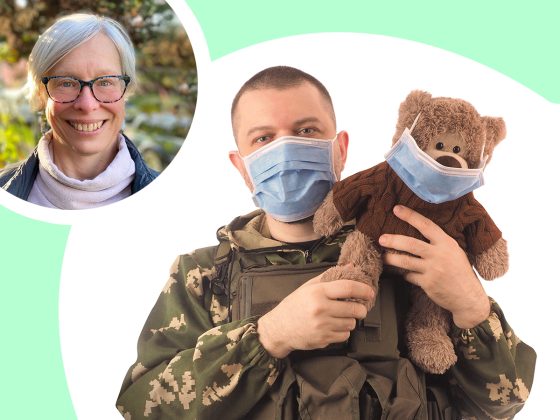
COVID-19 and Military Parents
Military families continue to serve even during the uncertainties of COVID-19.
By Kelly Blasko, PhD, Defense Health Agency
In many ways, military families are experiencing the effects of the COVID-19 pandemic just like civilian families. However, there are two unique challenges: figuring out how COVID-19 precautions and travel restrictions affect permanent change of station plans, and managing at-home quarantines and/or isolation.
Here are some ways to help everyone in the military community stay safe and healthy.
Get the vaccine and maintain recommended COVID-19 safety guidelines.
The vaccine protects yourself, your family, your community, and the nation from COVID-19. It is a safe and effective vaccine to protect against COVID-19. But remember, even after receiving the vaccine, it is still important to practice COVID-19 safety precautions.
Make a “COVID-19 family rules” cheat sheet.
Since there are many differences in COVID-19 restrictions based on location, it can get confusing for everyone. Making a visual checklist of your precautions can help everyone remember what needs to happen. It could include ideas for different situations such as leaving home to go to the store, going to daycare, visiting with friends and family, or even at-home quarantine.
Know the difference between quarantine and isolation.
Even adults get confused by the definitions of quarantine and isolation. Both include a period of time when parents and children may be separated in order to prevent the spread of COVID-19. In the case of quarantine, a person exposed to someone who had COVID-19 stays separate. Isolation happens when a person actually has COVID-19.
Sometimes an active-duty parent may be required to quarantine at home and be physically separated in another room. If an active-duty parent becomes sick from COVID-19, there will be a period of isolation in a location that may or may not be at home. In both of these cases, it may be hard for young children to understand what is happening. They may have questions like “Why can’t I be with Daddy if we live in the same house?” or “Why can’t I be with my Mommy when she is sick?” Young ones need to know that the separation is a time for everyone to protect each other from getting sick, and that it’s only for a little while.
Establish an at-home quarantine routine
If a parent is quarantined at home, it is important that the child understand that their parent needs to do this just for a short while. Giving kids opportunities to show they care can help pass the time and help them feel connected. For instance, children may help prepare meals and create drawings to share, and a nightly video chat is a great way to for children to share updates about their day or read bedtime stories together.
Get the latest information on PCSing
Travel restrictions and COVID guidelines may change at a moment’s notice. This uncertainty can cause stress and anxiety for military parents. Make sure you are in touch with the latest information. Reassure your child that changes happen sometimes and you or a loved one will be with them through it all. Reach out to your command to get the specifics.
Military families are used to moving fairly regularly and know a lot about preparation and flexibility. But with the COVID-19 pandemic, PCS plans may get disrupted by unforeseen events. There may also be differences in COVID-19 restrictions from one location to another, so families may have to plan to include a period of time for quarantine before and/or after a move.
To access health information, visit https://www.health.mil/coronavirus
To access coronavirus updates for the military community, visit https://www.militaryonesource.mil/coronavirus/
Kelly Blasko, PhD is a counseling psychologist in the Defense Health Agency. She has worked in various clinical settings including marriage and family clinics, military treatment facility, university counseling centers, and community mental health centers. In her current position, she applies her clinical knowledge to design and develop digital health resources to improve the lives of military service members and their families.
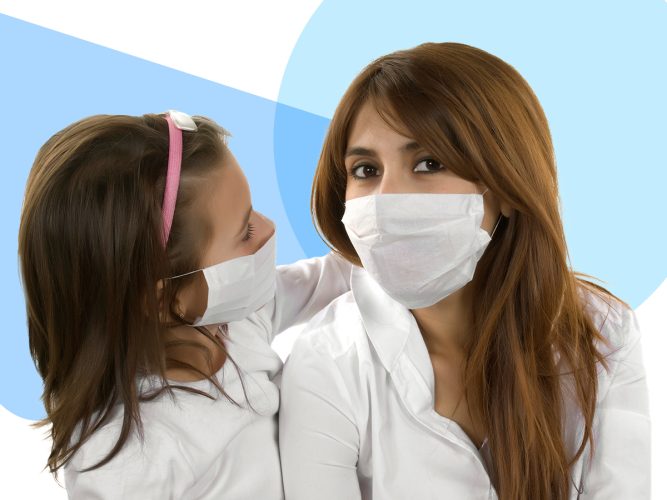
Good Questions (and Answers) About Covid-19 Vaccines
Common questions children ask about vaccines, and possible answers.
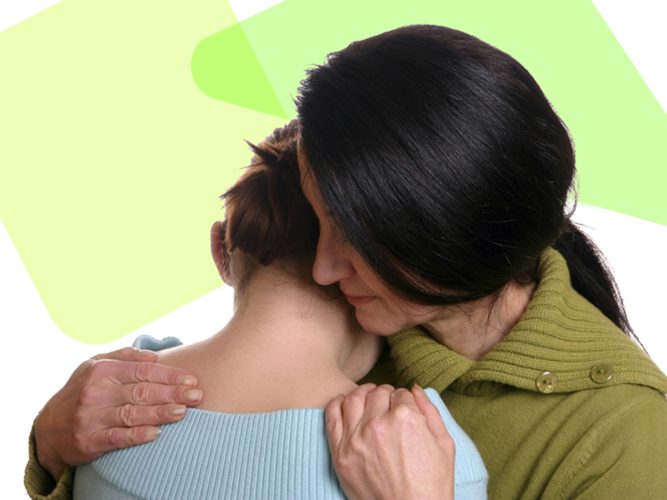
Helping Children Through Grief Related To COVID-19
There are ways to help families talk about death, express their feelings, and grieve together.

Hooper’s Store Reopens
As communities open up, together we can adjust to a new way of doing things—while keeping everyone safe.
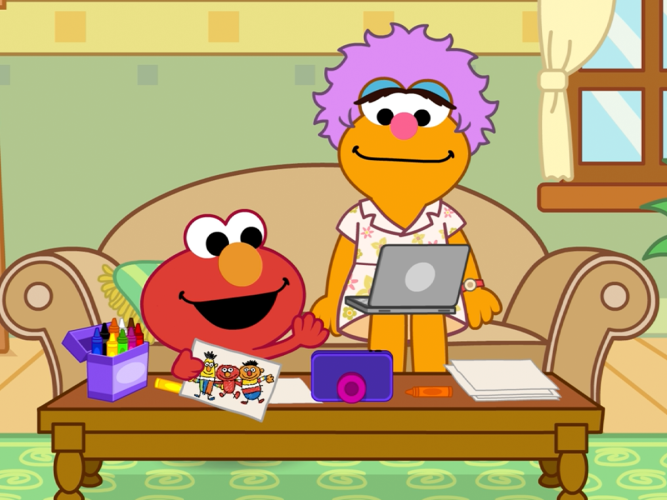
When Children Miss Their Friends
There are ways to stay connected with people we love...safely.
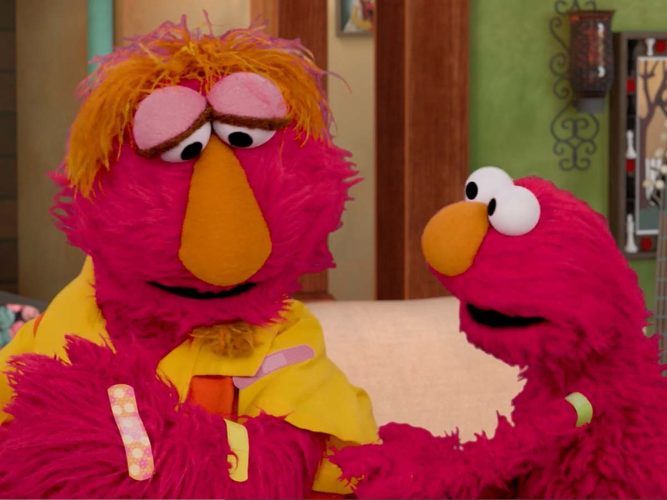
Elmo Gets the Covid-19 Vaccine
Elmo and Louie share their experience with the COVID-19 vaccine.

Elmo’s Bravery Bandage
A coloring page to help celebrate a child’s bravery when getting a shot.
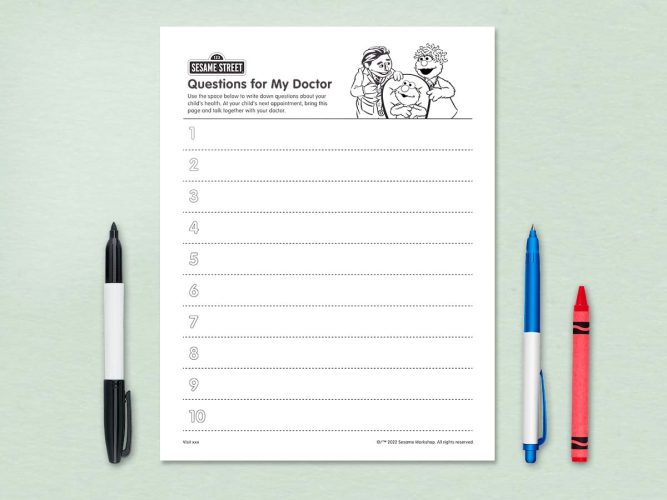
Questions for My Doctor
A place for parents and children to list questions for their doctor.
